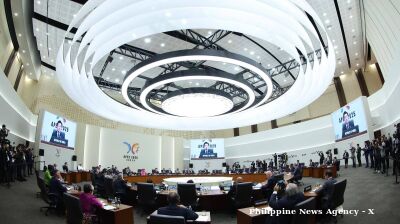Macedonia’s Special Prosecution Office (SPO) has launched three new investigations including one that relates to the halting of the 2011 census. One prosecutor claimed the census was called off in an attempt to conceal the unfavourable demographic situation resulting from mass emigration.
The cancellation of the 2011 census means that there has been no census since 2002 to give an accurate number of the people in the country, both the majority Macedonians and ethnic minorities. This has significant political implications, given the quest of the country’s substantial Albanian minority for more rights.
The new investigation involves former prime minister and ex-leader of the now opposition VMRO-DPMNE, Nikola Gruevski.
For the first time, the leader of the ethnic Albanian Democratic Union for Integration (DUI), Ali Ahmeti, is also involved in an SPO investigation. The DUI is now a coalition partner in the Social Democratic Union of Macedonia (SDSM)-led government that came to power in May 2017, and was also a partner in the previous government led by VMRO-DPMNE in the period 2006-2017.
In the case dubbed “Census”, Gruevski and Ahmeti are suspected of having agreed to halt the statistics office’s work on the census in October 2011, to hide“unfavourable facts about the demographic and economic situation” resulting in a mass exodus of the working age population, the SPO said in a statement.
The census was stopped by a law adopted by the parliament. The budget damages due to the halting of the census totalled MKD15.1mn (€2.8mn), which had been spent on preparations.
To avoid taking responsibility for the decision, the two political leaders informed the public that the census had been halted for technical reasons.
Many civil associations and some political parties and experts are now pushing for a new census to show the real number of Macedonians and ethnic minorities in the country.
The ethnic question
Albanians are thought to make up around 25% of Macedonia’s population, which was estimated at 2.081mn in 2016, although this is disputed by some Macedonian nationalists groups who think Albanians are less than 20%. In addition, many Kosovans were granted Macedonian citizenship and they are eligible to vote even though they live in Kosovo, not in Macedonia.
Confirming the proportion at 25% would most likely lead Albanian groups to seek greater concessions from the government, possibly even including federalisation. Back in 2001 this led to a major inter-ethnic conflict. The conflict left over 100 Macedonian soldiers and police officers dead while the number of ethnic Albanians killed in the unrest is not known, even though unofficially it is as much as several thousand.
The issue has come to the fore recently as the Social Democrat-led government is making more concessions to the ethnic Albanian minority. The government, which is backed by parties representing ethnic Albanians, is currently trying to have a new language law adopted that would make Albanian the country’s second official language, despite strong opposition from VMRO-DPMNE and President Gjorge Ivanov. This now threatens to plunge the country into another political crisis.
Gruevski under scrutiny
In addition to the Census probe, Gruevski and former transport minister Mile Janakieski are also the subject of a separate investigation, in which they are suspected of using their influence to force the tender commission to select the Greek company Aktor to build the Demir Kapija-Smokvica motorway section in 2012, even though an Italian company had a better and cheaper offer. However, the Italian company's legal representative was close to the rival SDSM.
Aktor was awarded the deal worth MKD480.4mn. The charges are related to abuse of the public procurement procedure and money laundering.
The SPO also announced a third investigation relating to a lawmaker who is suspected of allowing the sale of state property to his associates at low prices. His name was not revealed, but another 13 people are suspected in this case, including the father of the MP and the mayor of the municipality of Makedonski Brod.
The SPO was set up in 2015 following the wiretapping scandal which revealed crime among top officials of the then VMRO-DPMNEled government. In most of the cases, the main suspects are Gruevski, his cousin and ex-secret police chief Saso Mijalkov as well as Janakieski and former interior minister Gordana Jankulovska.
News

US–China soybean sales restart
According to Scott Bessent, US Treasury Secretary, the agreement marks a significant step towards restoring normalcy for American farmers.

Russia faces $50bn annual losses from oil sanctions as Lukoil exits international assets
Russia is expected to lose at least $50bn annually due to oil-related sanctions, as Moscow’s largest private oil producer Lukoil agrees to sell its international assets and Germany considers nationalising operations owned by state-run Rosneft.

Chicken and chips in Seoul - for Nvidia, Samsung and Hyundai
In a low-key fried chicken shop in southern Seoul, the leaders of Nvidia, Samsung Electronics and Hyundai Motor held an informal meeting on the evening of October 30.

Presidents Lee and Xi begin diplomatic chapter at APEC summit
President Lee, who is chairing the first session of the summit at the Hwabaek International Convention Centre, stood at the entrance to personally welcome participants. President Xi reached the venue at approximately 10:02.




